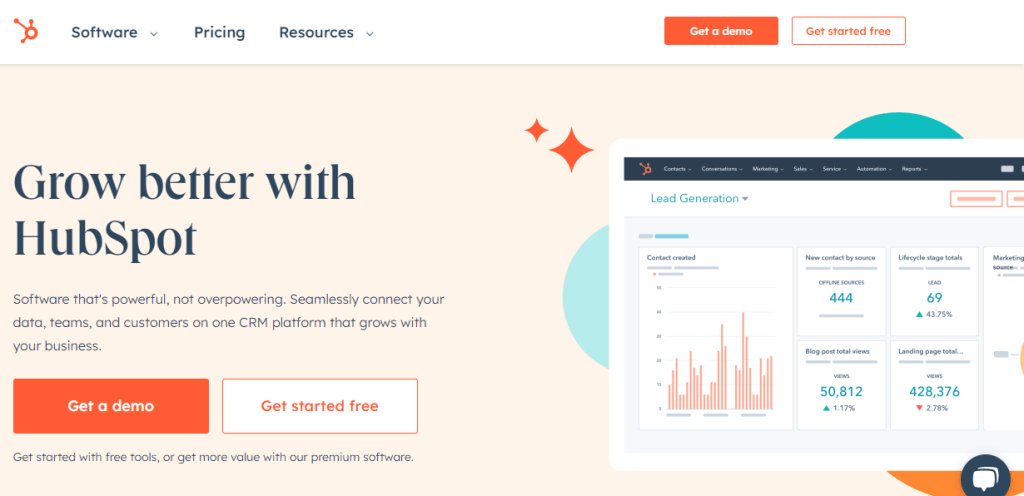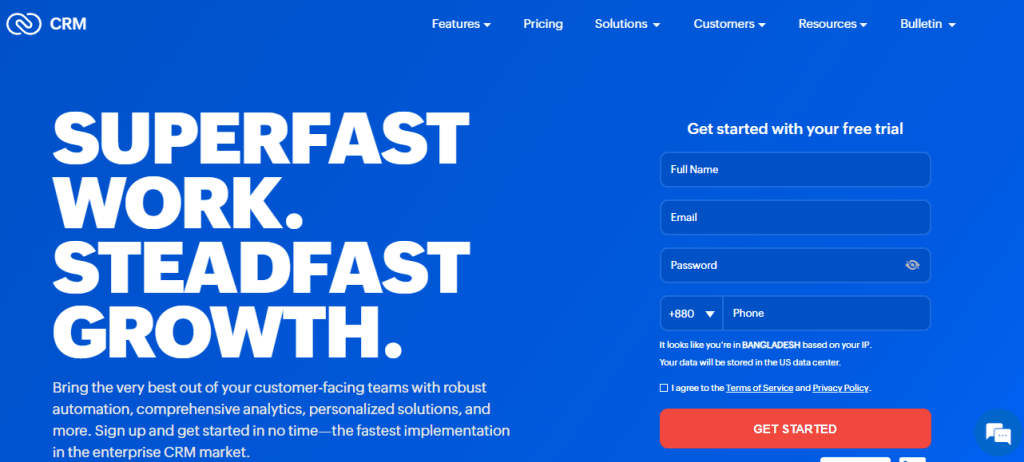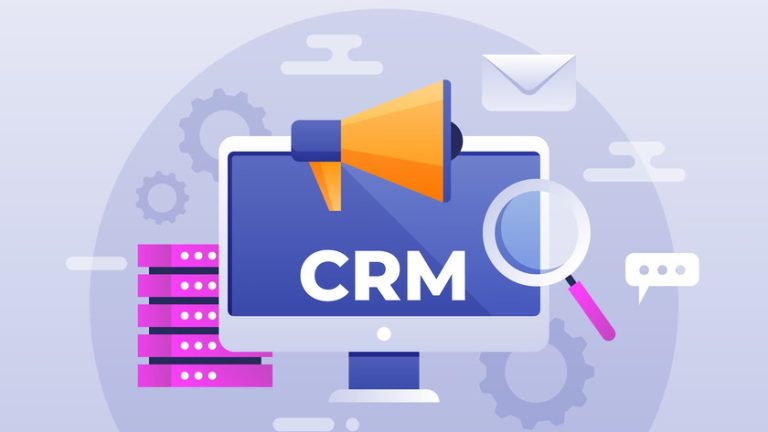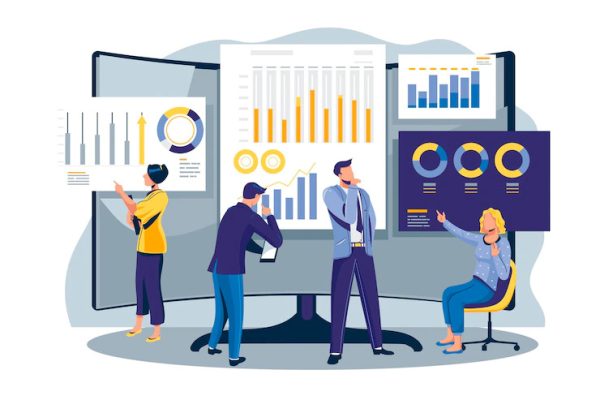In today’s highly competitive business landscape, customer satisfaction and loyalty are more important than ever before. That’s why customer relationship management (CRM) has become an essential tool for businesses of all sizes and industries.
CRM refers to the strategies, technologies, and practices used to manage and analyze customer interactions and data throughout the customer lifecycle.
It’s a powerful way to gain insights into customer behavior and preferences and to build strong, long-lasting relationships with customers.
In this blog post, we’ll explore why is CRM Important to an organization, and how it can help drive growth, improve customer satisfaction, and enhance overall business performance.
What is CRM and Why It is Used for?
CRM stands for Customer Relationship Management, and it refers to a strategy and set of tools and techniques. It is used by businesses to manage and analyze customer interactions and data throughout the customer lifecycle. The goal of CRM is to improve customer relationships, drive sales growth, and increase customer retention and loyalty.
CRM software is used by businesses to store customer data, track interactions and communication with customers, manage sales pipelines, and automate marketing and customer service processes.
By using CRM, businesses can gain a better understanding of their customers, identify customer needs and preferences, and provide personalized service and experiences.
Some of the key benefits of using CRM software include:
- Increased customer satisfaction and loyalty
- Improved sales and marketing effectiveness
- Better customer data management and analysis
- Streamlined business processes and workflows
- Enhanced collaboration and communication within teams
CRM can help businesses build strong, long-lasting relationships with their customers, and to provide better service and experiences. By implementing a CRM strategy and using CRM software, businesses can gain a competitive advantage and achieve long-term success and growth.
Why is CRM Important to an Organization?
Customer relationship management is important to an organization for several reasons:
- Improved customer satisfaction: It helps organizations to better understand their customers’ needs and preferences, enabling them to provide personalized and effective service, leading to higher customer satisfaction levels.
- Increased customer retention: With better customer satisfaction, comes improved customer retention. A well-implemented CRM system can help organizations identify and target customers who are at risk of leaving and take proactive steps to retain them.
- Streamlined sales and marketing: It can help organizations to streamline their sales and marketing efforts by providing a centralized platform for managing customer data and interactions. This can lead to more effective sales and marketing campaigns and increased revenue.
- Improved collaboration: It can help teams to work together more effectively by providing a shared platform for managing customer interactions, tasks, and activities. This can lead to improved collaboration and better customer outcomes.
- Enhanced data management: A CRM system can help organizations to manage their customer data more effectively, providing insights into customer behavior, preferences, and trends. This can enable organizations to make better-informed decisions and improve their overall performance.
How Many Ways Do Businesses Benefit From Implementing a CRM System?
There are many ways that businesses can benefit from implementing a CRM system. Here are some of the key benefits:
- Improved customer relationships: A CRM system can help businesses build stronger relationships with their customers by enabling them to keep track of customer interactions, preferences, and history.
- Increased efficiency: It automates many manual tasks, such as data entry, lead management, and customer communication, which can save businesses time and increase their efficiency.
- Better collaboration: It can help teams work together more effectively by providing a centralized database of customer information that is accessible to everyone.
- Enhanced sales performance: It helps sales teams manage their leads and opportunities more effectively, resulting in improved sales performance.
- Improved customer service: It can help businesses provide better customer service by enabling them to respond more quickly and effectively to customer inquiries and issues.
- Increased customer retention: By providing a better overall customer experience, a CRM can help businesses improve customer retention rates and reduce churn.
- Improved analytics and reporting: It provides businesses with valuable insights into customer behavior and trends, enabling them to make better-informed business decisions.
HubSpot Vs. Zoho CRM: Which is the Best CRM Software for Business?
The choice between HubSpot and Zoho CRM depends on the specific needs and requirements of your business.
Both are popular CRM software options, but they have different features and pricing plans that cater to different business sizes and industries.
HubSpot

HubSpot is a comprehensive inbound marketing and sales software platform that offers CRM features as part of its suite of tools. It is an all-in-one solution that allows businesses to manage their marketing, sales, and customer service activities on a single platform.
It offers a user-friendly interface, powerful automation tools, and a range of integrations with other software applications. It is free to use, but advanced features require a paid subscription.
Key Features
- Contact and lead management
- Deals and pipeline management
- Email tracking and templates
- Meeting scheduling
- Task management
- Website activity tracking
- Customizable reporting
- Integrations with other HubSpot tools, as well as with third-party tools
Pros
- User-friendly interface
- Powerful automation features
- Free to use
- Robust customer support and resources
- Strong focus on inbound marketing and sales
Cons
- Limited customization options for reporting
- Advanced features require a paid subscription
- No built-in phone support
Zoho CRM

It is a cloud-based CRM software that offers a range of features for sales, marketing, customer support, and analytics. Zoho CRM is highly customizable and can be tailored to meet the specific needs of your business.
It offers a range of integrations with other software applications and includes advanced analytics tools to help you track your sales and marketing performance. Zoho CRM offers different pricing plans depending on the features you require, and it offers a free trial.
Key Features
- Contact and lead management
- Sales forecasting
- Email and social media marketing
- Inventory management
- Task management
- Customizable dashboards and reports
- Integrations with third-party tools
Pros
- Highly customizable and flexible
- Range of pricing plans to fit different needs and budgets
- Strong automation and analytics features
- Built-in phone support
Cons
- Steep learning curve for new users
- Interface can be cluttered and overwhelming
- Limited email templates and design options
Ultimately, the best CRM software for your business will depend on your specific needs and budget. It’s a good idea to compare the features and pricing of both HubSpot and Zoho CRM and evaluate which software best meets the needs of your business.
You may also want to consider factors such as ease of use, customer support, and user reviews when deciding.
Summary
Implementing a CRM strategy and using CRM software can bring significant benefits to businesses of all types and sizes. By focusing on customer relationships and improving customer satisfaction and loyalty, businesses can drive growth, increase revenue, and achieve long-term success.
With the help of CRM software, businesses can gain valuable insights into customer behavior and preferences, streamline their sales and marketing processes, and provide personalized service and experiences.
CRM is a powerful tool for building strong customer relationships and improving overall business performance in today’s competitive marketplace. If you haven’t already, consider implementing a CRM strategy for your business today to start reaping the benefits. We hope you have found the answer Why is CRM Important to an organization?





